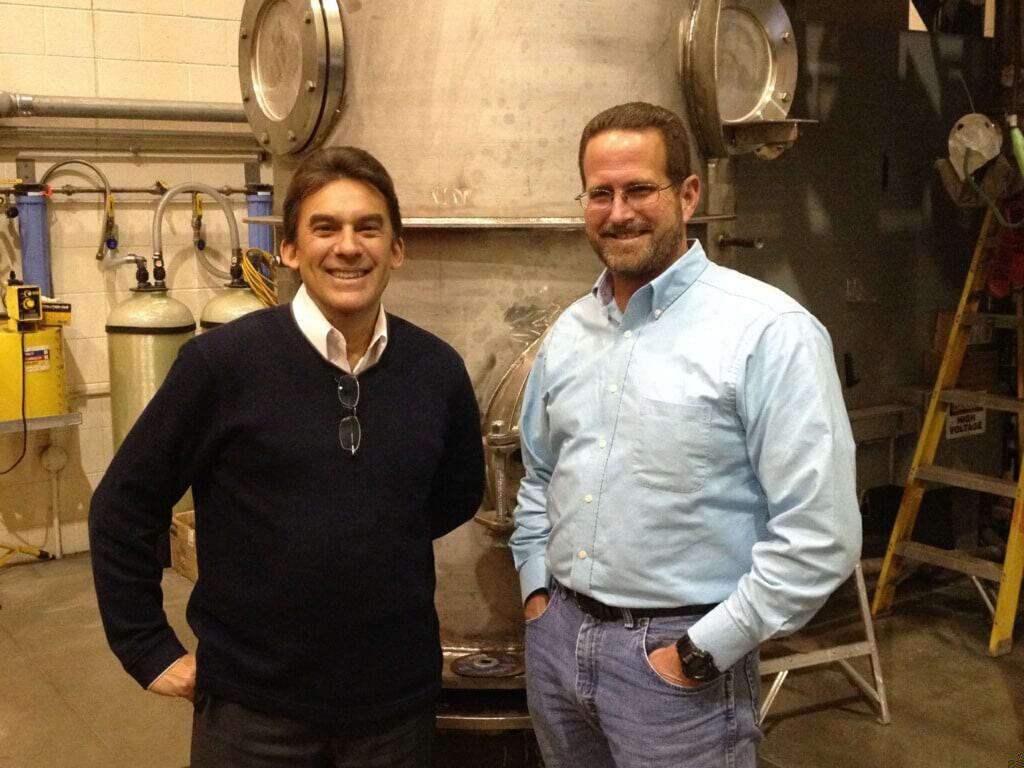The Atomic Show #152 – Dr A David Rossin Discusses Carter’s Anti-Nuclear Campaign Promises
Dr. A. David Rossin is a former President of the American Nuclear Society, an Engineering Fellow for the American Association for the Advancement of Science, and a career nuclear engineer. He has deep experience in private industry, with the national laboratories and in energy policy as a former Assistant Secretary of Energy.
We spoke on March 30, 2010 about Dave’s research into the nuclear policies promised by Governor Jimmy Carter during the 1976 campaign for President. Those policies were later implemented by President Carter after his election success. As Dave says during our talk, until President Carter, many people could legitimately dismiss campaign promises, but President Carter actually made a book of his various promises and worked to try to keep them.
Much to the detriment of nuclear energy development in the United States, two of his kept promises were to halt used fuel recycling in the US and to avoid creation of a “plutonium economy” by stopping the breeder reactor program.
Unlike Dr. Rossin, I am a suspicious guy who believes that many important decisions in the politics can best be understood by following the money. The obvious beneficiaries of a policy to avoid a “plutonium economy” are those entities who already have control over “the hydrocarbon economy”. No commodity supplier profits by being replaced. Dr. Rossin disagrees, but that made for a bit of a lively discussion.
Podcast: Play in new window | Download (Duration: 47:32 — 21.8MB)
Subscribe: RSS



I found this to be a particularly interesting show. I’ve always lacked a very good picture of what went on during Carter’s term – being well before my time. This cleared up some major misconceptions.
Hate to say it, but I was also happy to hear Rod Adams get grilled about the energy companies conspiring against nuclear power. Monied interests in fossil fuels are doubtfully doing so in my mind. If anything, I see political think tanks trying to aggravate peak oil doing so, and maybe the higher-ups of GE. Either way, crying conspiracy is unlikely to help the pro-nuclear case, and very likely to hurt it.
Anyway, this was a great show and I enjoyed it. Many thanks and keep up the good work.
Alan – glad you enjoyed the show. I do not want to argue, but I do ask that you consider the idea that pointing to the fact that suppliers in commodity markets have a logical interest in maintaining some control and limits on the supply of that commodity is different from suggesting a conspiracy.
I do not believe that ALL fossil fuel suppliers worked against nuclear, but all you have to do to understand their interest in limiting supply is to read about OPEC production quotas or to read about the long running competition between coal and gas.
Very nice to hear Dave Rossin. One note on Pres. Carter: he did work on the cleanup of the Chalk River Reactor after their accident. I would not be surprised if his nuclear scepticism partly originated from his seeing the downside of nuclear such as Chalk River, but did not get to see successes such as Nautilus and Shippingport.
Jimmy, I think, was driven by antis – who were funded by oil propaganda – on one side – and support for coal power on the other. (Promises delivered to miners?)
Good show, by the way, interesting.
I found your discussion interesting, but strangely, or perhaps naively, narrow.
President Carter was a creature of the Rockefeller-funded Trilateral Commission, which chose him to become President because of his anti-nuclear and other green policies. The Trilateral Commission had adopted the outlook of the Council on Foreign Relations (a spinoff of the British Royal Institute of International Affairs) and its “Project 1980s” report. This report, in very great detail, called for the “controlled disintegration” of the U.S. economy, and the Carter Administration proceeded to carry this out.
Under Carter, James Schlesinger took control of the new Department of Energy and openly said that nuclear power was not cost effective, at the same time that he threw his support behind Sun Day and subsidies to wind, solar, etc. Schlesinger also lobbied against fusion.
For more on this, see “Who Killed U.S. Nuclear Energy” by Marsha Freeman
http://www.21stcenturysciencetech.com/articles/spring01/nuclear_power.html
As for the green movement: It didn’t happen accidentally. In the post-war period
the Malthusian Prince Philip and his now deceased co-royal, Prince Bernhard, founded the World Wildlife Fund and initiated the environmental movement as a population control instrument, promoting the concept that human beings are ruining the planet.
(Philip very openly asserts that he wants to cut back to 1 or perhaps 2 billion people.)
The oil and gas companies, as well as the utilities, including the nuclear utilities, jumped on this bandwagon, funding what became a proliferation of green groups. The policies promoted by these groups all have the effect of cutting population, in the developing sector quite murderously and in the industrialized nations.
This was not a “left” versus “right” issue. The Ford Administration, with Dick Cheney as chief of staff, designed a nuclear policy that was the same as Carter’s: no reprocessing and no breeder. The ideologue behind this policy was Albert Wohlstetter, the real Dr. Strangelove. He was the ghoulish RAND nuclear strategist advisor to Presidents, and who, in the 1970s, promoted the idea that civilian nuclear plants equaled bombs, and that reprocessing and breeders were even worse. For more on this, see “Albert Wohlstetter’s Legacy: The Neo-cons Not Carter Killed Nuclear Energy” http://www.21stcenturysciencetech.com/2006_articles/spring%202006/Special_Report.pdf
We can’t win the fight for nuclear power without a true perspective on the nature of the enemy.